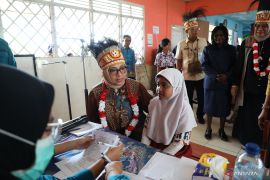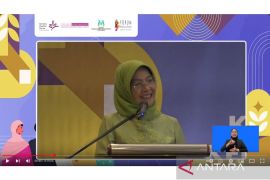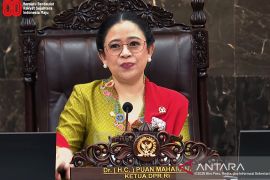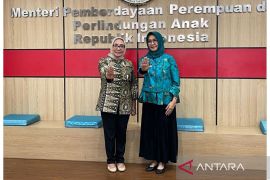Thus, women become leaders because the issues involve women as victims or that they concern women, even though it should not be like that.Jakarta (ANTARA) - Women’s representation should not only be improved in terms of quantity but they must also be encouraged to occupy strategic positions, namely as policymakers, main expert staff at the Presidential Staff Office Brian Sriprahastuti has said.
"Yes, it can be corporate policies, but what is most important is public policies," she added during a discussion here on Thursday.
Women do fill strategic positions in several programs, she remarked.
However, she said, it is unfortunate that there are still perspectives that lead to the placement of women as leaders only in programs related to women as victims or issues that involve women.
"Thus, women become leaders because the issues involve women as victims or that they concern women, even though it should not be like that," she added.
She also highlighted the fact that the number of women graduating from educational institutions and choosing to work until they reach strategic positions is still low.
Sriprahastuti opined that the issue is a complex challenge given that the world is still masculine in nature.
In addition, society still entrusts domestic tasks in families to women. This can inhibit and restrict women from developing their careers until they reach strategic positions.
"As long as this world is still masculine, no matter how much affirmation is given to women, they still wouldn't be able to compete because there is still a domestic burden attached to them," she said.
"This domestic burden is not yet shared with men, which restricts women," she added.
However, according to Sriprahastuti, in terms of quantity, women's representation is actually equal to men's. For instance, there are currently many women working at both government institutions and private companies.
Moreover, in terms of education, the number of women pursuing education for 12 years or even up to the university level also rivals that of men.
The culture that prioritizes men in pursuing education compared to women has also started to decline in society.
Related news: Puspayoga underlines need for gender mainstreaming in libraries
Related news: Increasing women's political participation important: MPR
Related news: Indonesia presents good practices of gender equality at UN
Translator: Rizka K, Fadhli Ruhman
Editor: Sri Haryati
Copyright © ANTARA 2023












